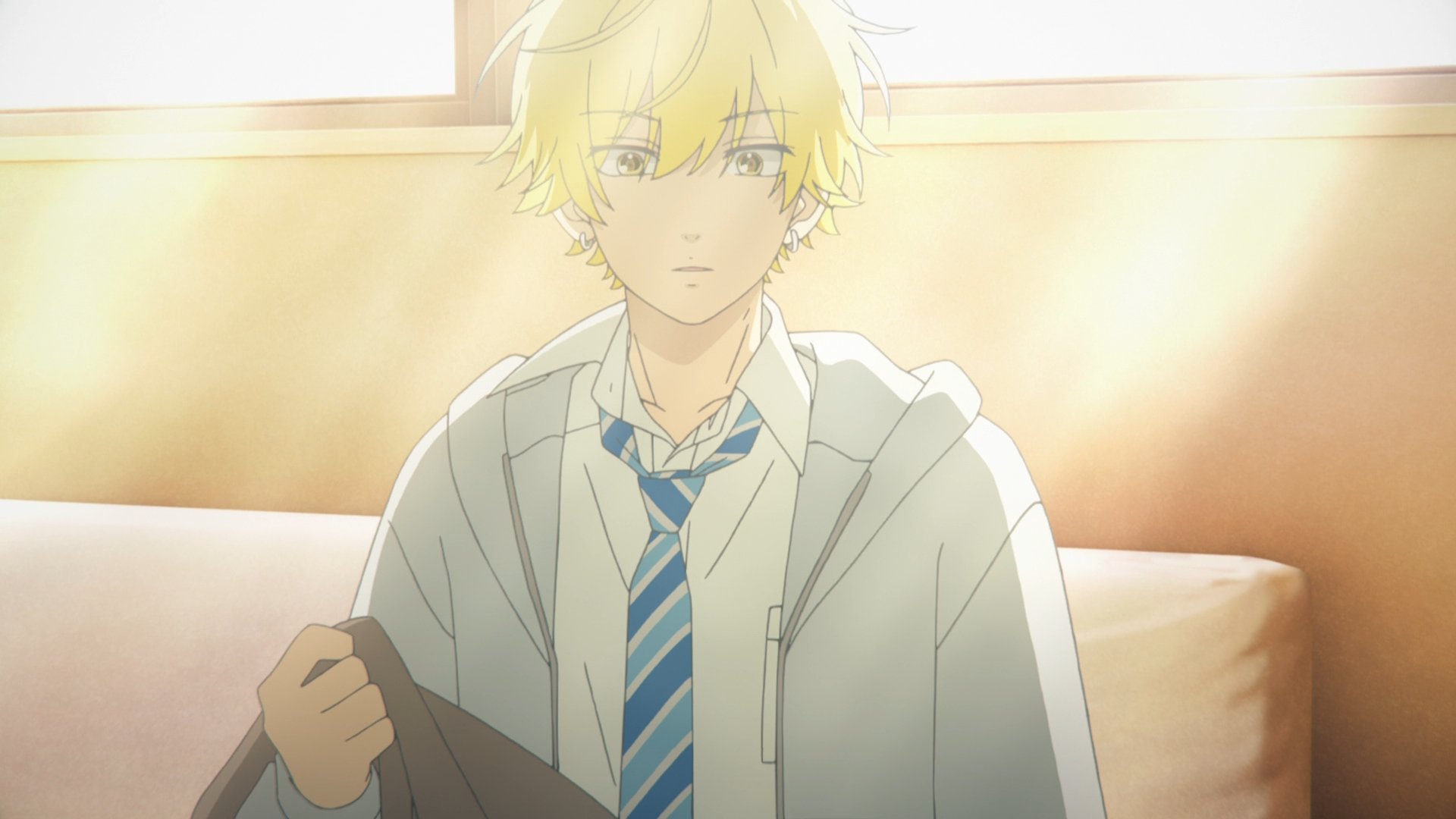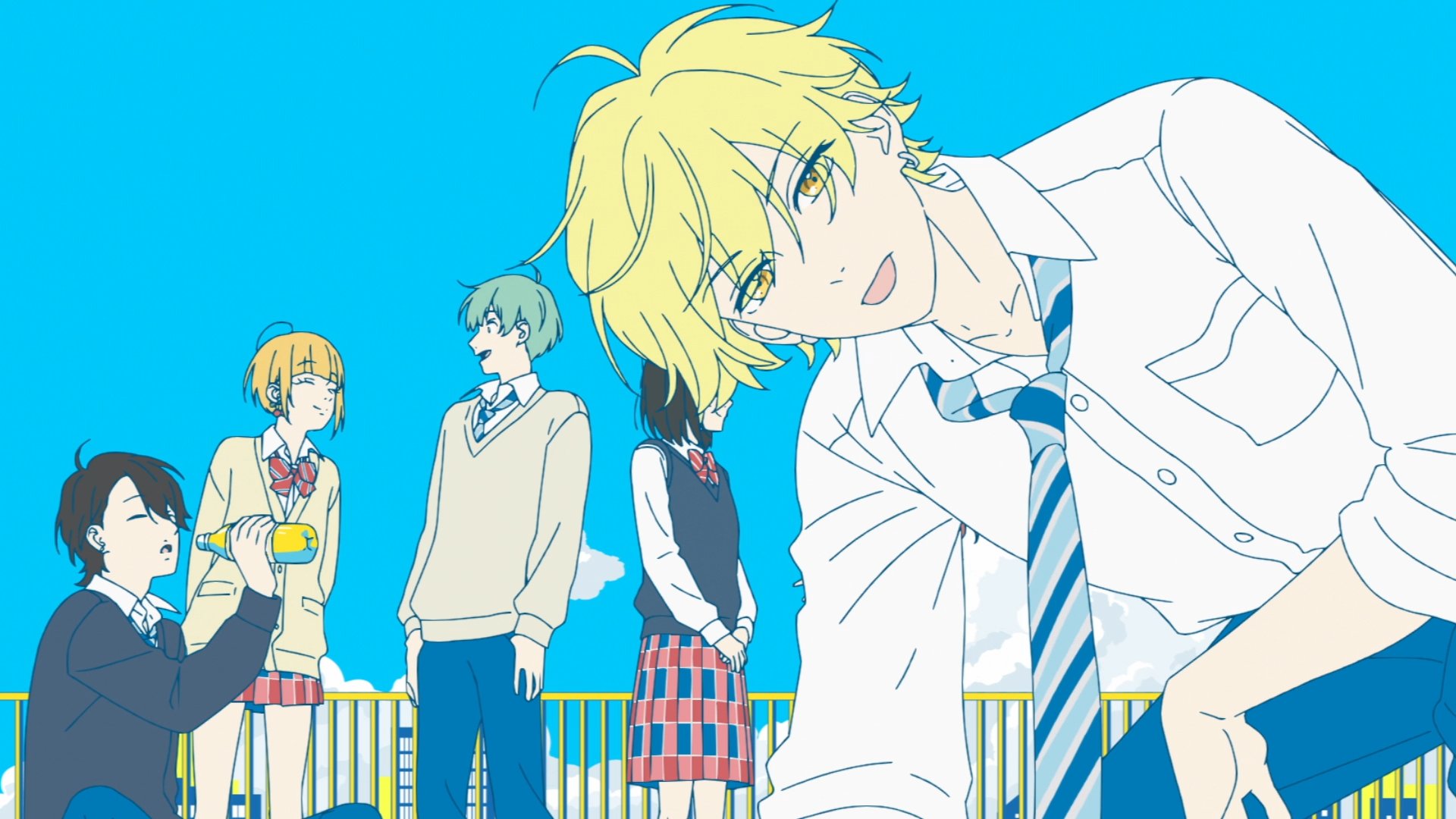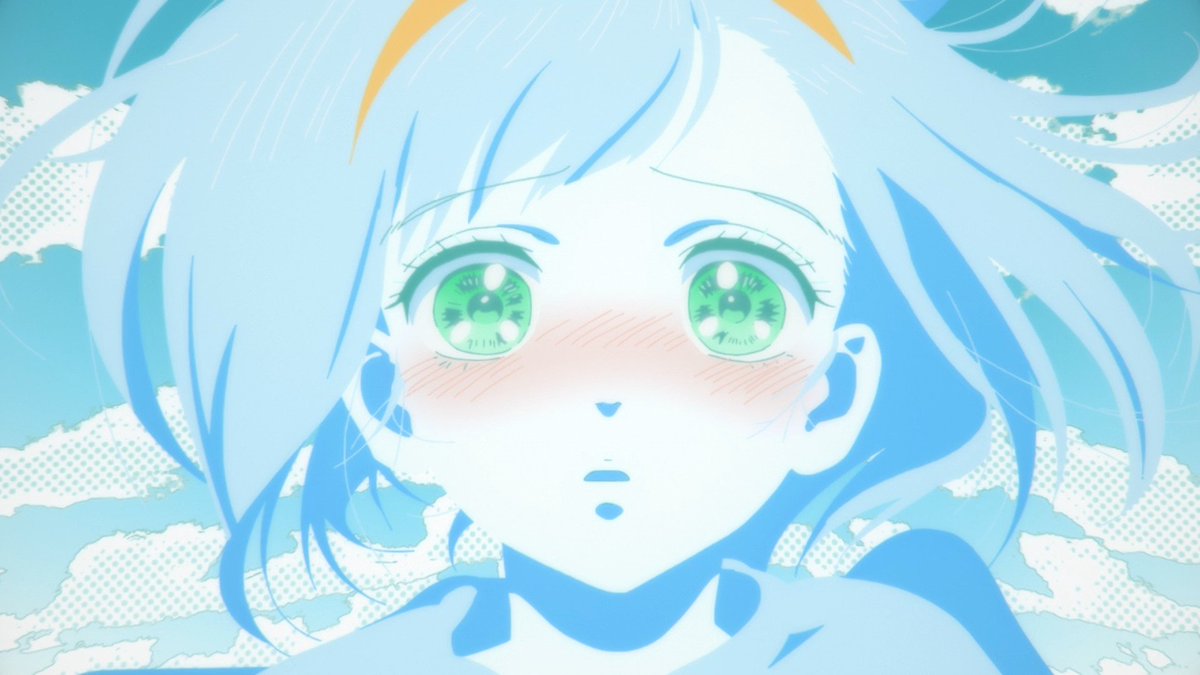Honey Lemon Soda Could Use More Flavor

Season aired: Winter 2025
Number of episodes: 12
Watched on: Crunchyroll
Translated by: ?
Genres: Drama, Romance
Thoughts: Honey Lemon Soda is an anime that left me incredibly conflicted. On one hand, it’s a charming romance wrapped in a story about self-confidence with the direction and respect that shojo anime adaptations have deserved and been without for years. On the other hand, Honey Lemon Soda is so incredibly predictable with its tropes that it borders on boring.
Ishimori was a severely bullied girl throughout middle school whose entire world changes when she meets Kai, a fellow teenager with golden hair and a particular bias for honey lemon soda. Thanks to meeting this popular boy who takes a particular interest in her, Ishimori grows to have self-confidence, stand up for herself, and aspire to more than just passing her days successfully in school.

Here lies the problem: this is a premise that we’ve seen a thousand times over. The plot generally follows the same beats of similar anime. The girl meets the popular guy, he shows her kindness, she learns to stand up for herself and believe in herself, she develops feelings for him, she’s stuck between feeling unworthy of a popular guy and actually pursuing her feelings, and then she ultimately chooses to pursue her feelings. Stories with similar plot points are a tale as old as time, so what really matters is for the characters to leap off the page and prove themselves unique and different — whether individually or together, ideally both.
Honey Lemon Soda lacks that uniqueness. Ishimori is your run-of-the-mill good girl who is too scared to stand up for herself. Kai is your popular golden boy who only opens his world to this one special girl and changes her life. That’s not to say the story doesn’t attempt to add complexity to the characters, but the reveals that make the main characters three-dimensional often come too little too late. Ishimori’s meek personality is explained only near the end of the series, which, by that point, many viewers, including myself, had already lost sympathy for her wishy-washy behavior and would’ve likely been much more sympathetic to her struggles if the reveal came sooner. Kai’s mysterious but likely troubled home life which makes him aloof and bold is also only hinted at in the last few episodes, again coming too late to show anything interesting about his character outside of usual stereotypes.
Their relationship also confused me throughout the series. We’re told that Kai is the good guy, yet he can be demanding of Ishimori — not even giving her a chance to add her own thoughts — and downright patronizing, yet this is somehow portrayed as attractive and romantic. Ishimori also jumps between being somewhat scared and submissive to his demands to actually listening and engaged, flip-flopping in ways that make me question her romantic feelings for him, especially when it’s the former.

My confusion with their relationship could also stem from the voice cast. I am a fan of both Kana Ichinose and Shogo Yano, two younger voice actors who have consistently proven their talent in challenging roles. Both have even been nominated for Best Voice Acting at various points in our Anime Trending Awards. Yet, I simply didn’t feel any chemistry between the two. Kai and Ishimori both sound flat, and when combined, make me think of line reading rather than voice acting. It becomes a chicken and the egg situation where I struggle to pinpoint whether it’s the bland story that leads to the flat voice acting or if it’s the flat voice acting that’s making the story blander.
Despite my issues with both the plot and the characters, the series does deserve respect. For one, because the director gave the series respect. Hiroshi Nishikiori helmed the project at JC Staff, pulling in various production team members to successfully deliver a creatively directed and dynamic anime. While not all episodes have the same creative intent, the episodes with the biggest plot points are often incredibly colorful with hilarious character animation and visual storytelling, using angles and transitions to describe Ishimori’s feelings. The highlight of the series goes to the eleventh episode, where episode director Kiyotaka Oohata arranges the scenes to flow like a camera following an athlete on a racetrack. The athlete is Ishimori, and the racetrack is the track of her life and the obstacles she faces throughout the day, ending in her successfully crossing the finish line by embracing her love for Kai and her determination to confess her feelings no matter the consequences. It’s a wonderfully whimsical spectacle to behold, and it made me so happy to see that sort of direction come about for a shojo anime adaptation, especially since these series are often sidelined by licensors and producers, leaving little room for creativity in the direction and storytelling.

If there was a technical aspect that missed the mark, it was the character designs. Every character’s eyes look the same. When the eyes are a large, unusual golden-yellow with bubbles sprinkled throughout the irises, the identical eyes become impossible to ignore when you see them on every single person. Even just keeping the eye designs but giving them different colors would’ve done wonders to make the character designs stand out in a less comical way.
Honey Lemon Soda is not an anime for me. The juvenile storytelling based on tired tropes that have been told a thousand times with no unique changes made me quickly lose interest in the characters and their relationships. However, I write this knowing that if I were still a teenager, I probably would’ve been drooling over Kai’s assertiveness and empathizing heavily with Ishimori’s lack of self-esteem. What was once attractive to me in my youth is no longer the case, and what I once easily empathized with when growing up is now something I’ve moved past. In the same way I’ve aged past this anime, Honey Lemon Soda could also be just right in giving a younger audience the confidence-boosting wish-fulfillment romance they desire and seek in their current lives. So if the premise still sounds interesting to you, check it out.
Rating
Plot: 5 (Multiplier 3)
Characters: 6 (Multiplier 3)
Art/Animation: 7.5 (Multiplier 2)
Voice acting: 6
Soundtrack: 7
FINAL SCORE: 61
If you liked the article, do not forget to share it with your friends. Follow us on Google News too, click on the star and choose us from your favorites.
If you want to read more anime-manga articles, you can visit our anime-manga category.